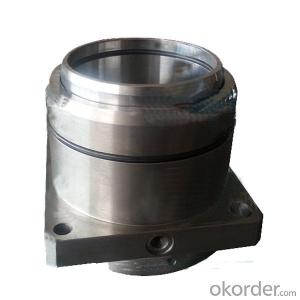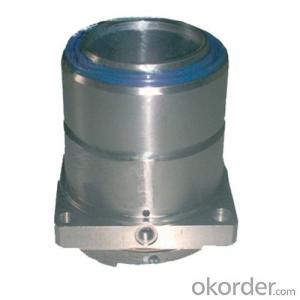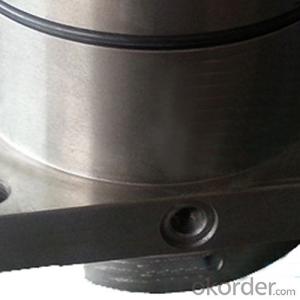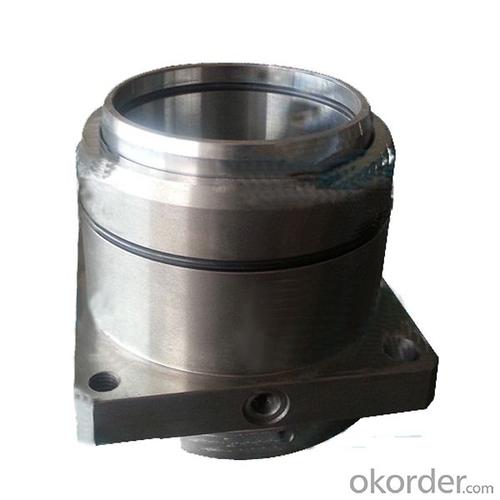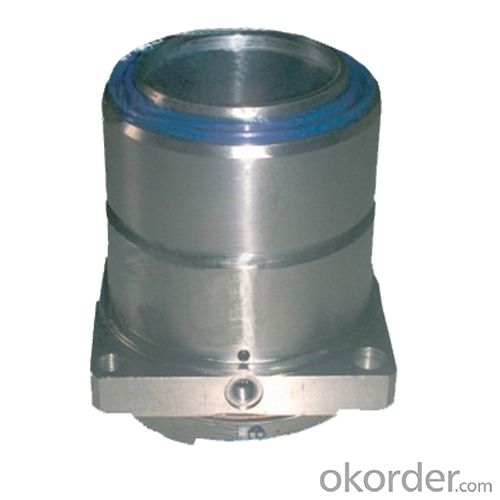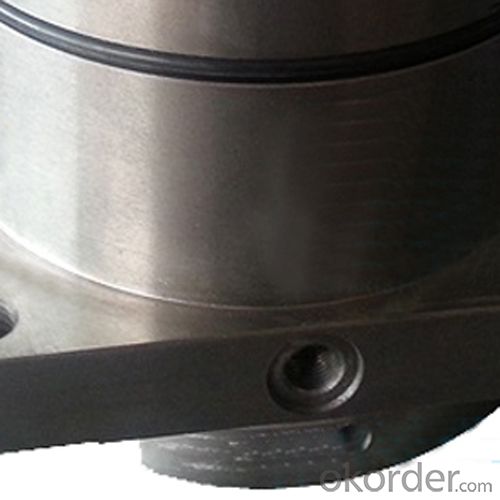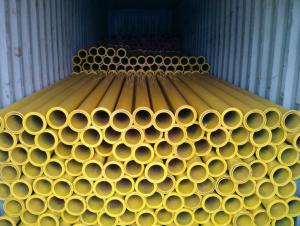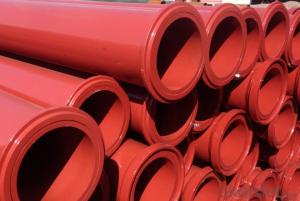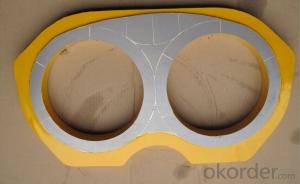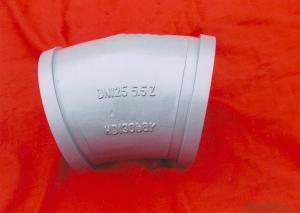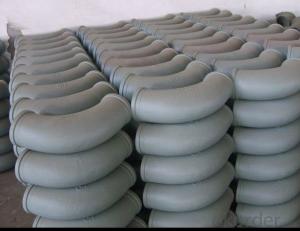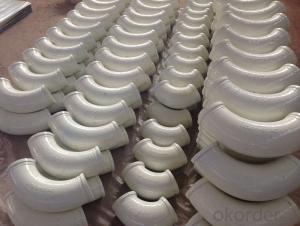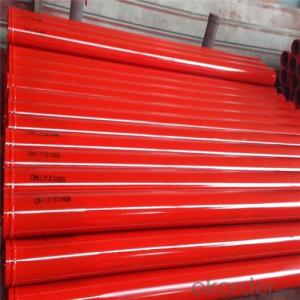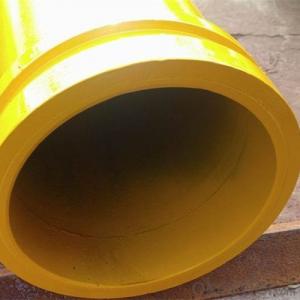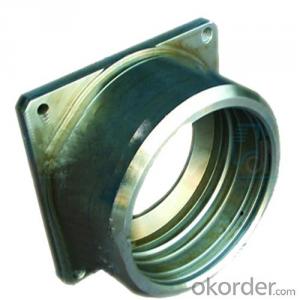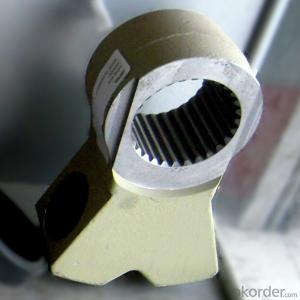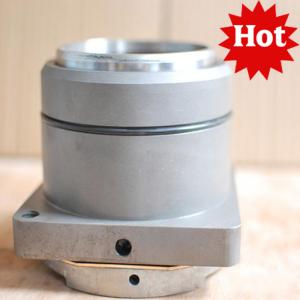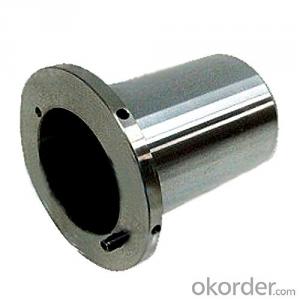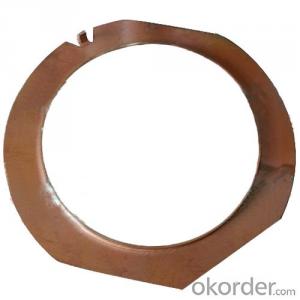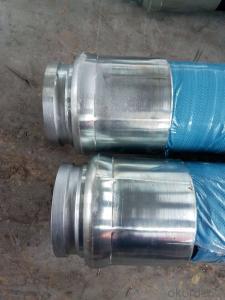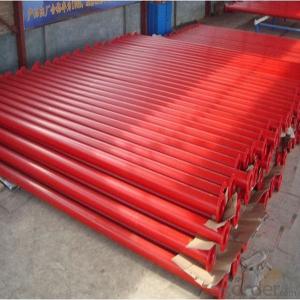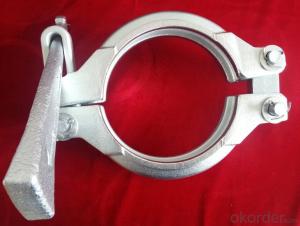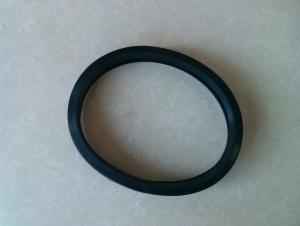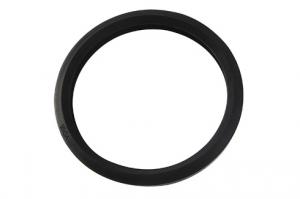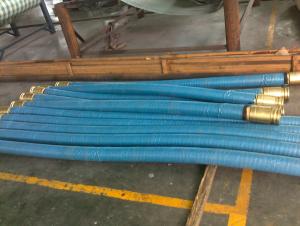Concrete Pumps Spare Parts Complete Upper Housing Q90
- Loading Port:
- Tianjin
- Payment Terms:
- TT OR LC
- Min Order Qty:
- 1 pc
- Supply Capability:
- 1000 pc/month
OKorder Service Pledge
OKorder Financial Service
You Might Also Like
Product Description:
The Concrete Pumps Spare Parts Complete Upper Housing Q90 normally made by special steel materials, according to customer’s requests, and also package in plywood box and put into container.
Scope of Application of the pipes
The Concrete Pumps Spare Parts Complete Upper Housing Q90 is a concrete pumps parts for combined use with other concrete parts in for concrete pumps and truck pumps. It can be widely used in the construction of various types of concrete structures like industrial and civil buildings, bridges, roads, and other types of infrastructure.
This pipes can only be used in concrete construction operations, but not in any other operations, like dragging, moving, or hoisting heavy articles or personnel. The parts is also not allowed to be used in any location where any combustible or explosive material exists or a cave-in may occur.
Product Advantages:
OKorder's Concrete Pumps Spare Parts Complete Upper Housing Q90 Channels are durable, strong, and safety.
Main Product Features:
· Premium quality
· Prompt delivery & seaworthy packing (5-10 days)
Reliable performance
Easy to weld
High safety.
· Professional Service
· Competitive pricing
Measuring of wall thickness from the outside
Low purchase cost
Specifications:
CNBM No. | 2080016 |
Original No. | 274893001 |
Description | Complete Upper Housing Q90 |
Remark |
FAQ:
Q1: How long about delivery time Concrete Pumps Spare Parts Complete Upper Housing Q90 ?
A1: Normally we keep the raw materials for old customers and sometime we also keep stock products to make sure delivery time in any emergency cases.
Q2: How do we guarantee the quality of our Concrete Pumps Spare Parts Complete Upper Housing Q90 ?
A2: We have established an advanced quality management system which conducts strict quality tests at every step, from raw materials to the final product. At the same time, we provide extensive follow-up service assurances as required.
Q3: How soon can we receive the product after purchase?
A3: Within three days of placing an order, we will book the vessel for goods. The specific shipping date is dependent upon international and government factors, but is typically 7 to 30 workdays.
Q4: If we can produce some goods according to customers request?
A4: Yes, we can produce Complete Upper Housing Q90 according to the difference country situations to make it suitable to the market and customers. We have very professional technical team to make the design.
Q5: How to make a quick resolution for after service?
A5: OKorder and our manufacture both have overseas branches all-around of world.
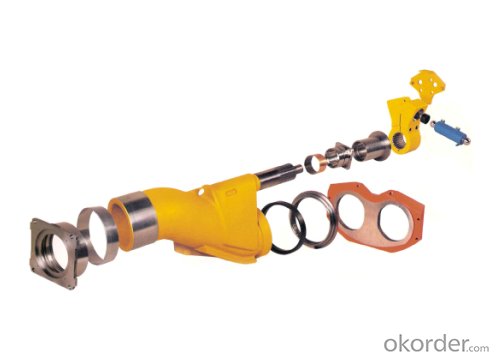
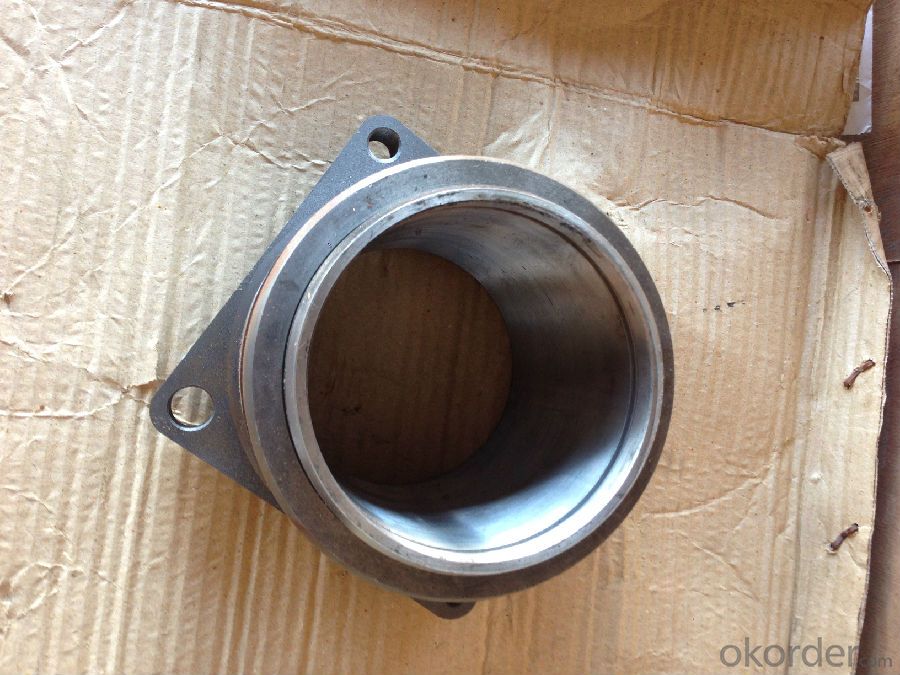
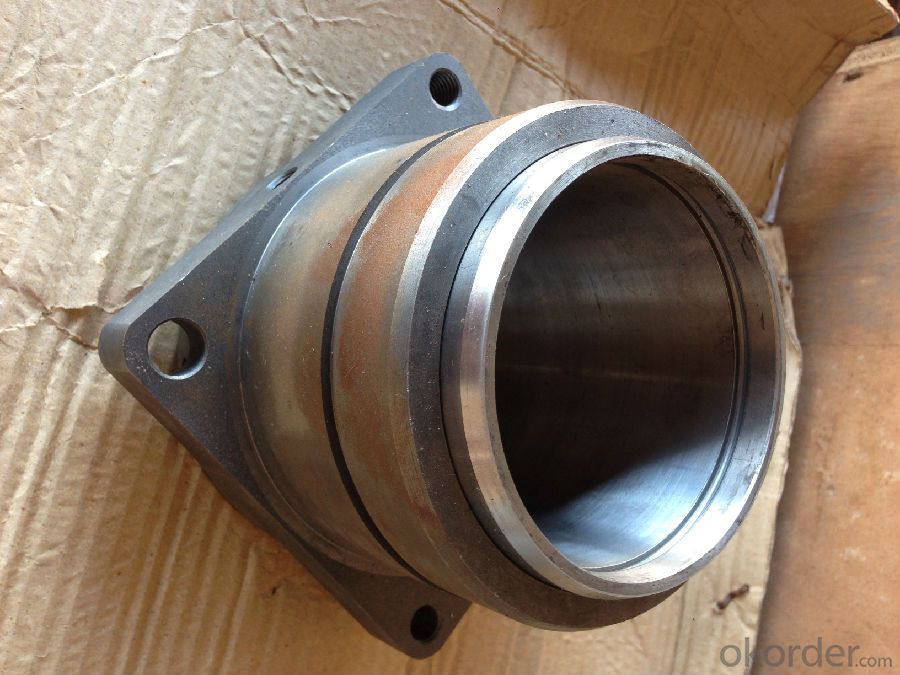
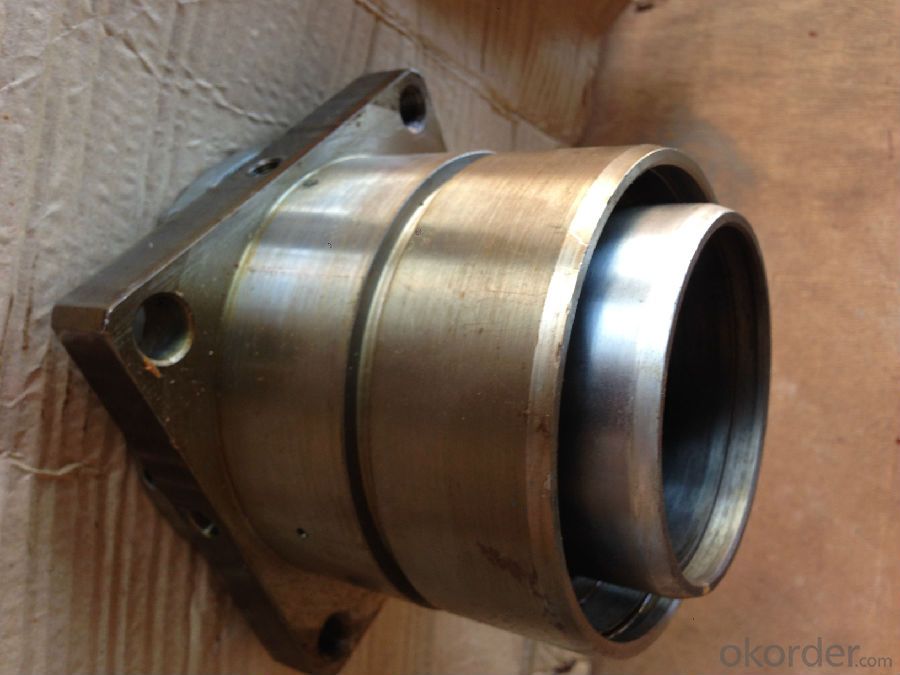
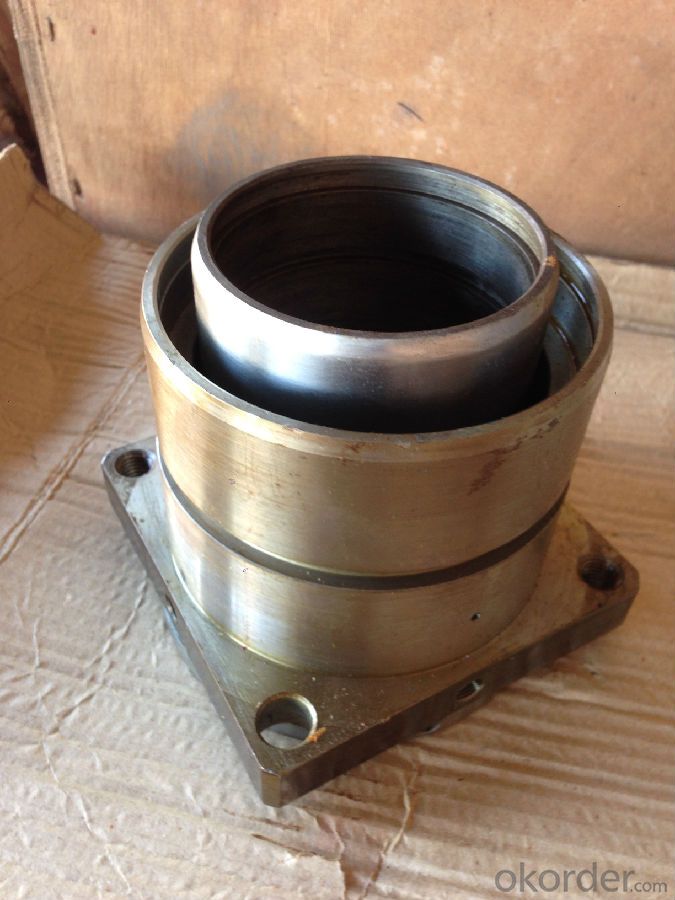
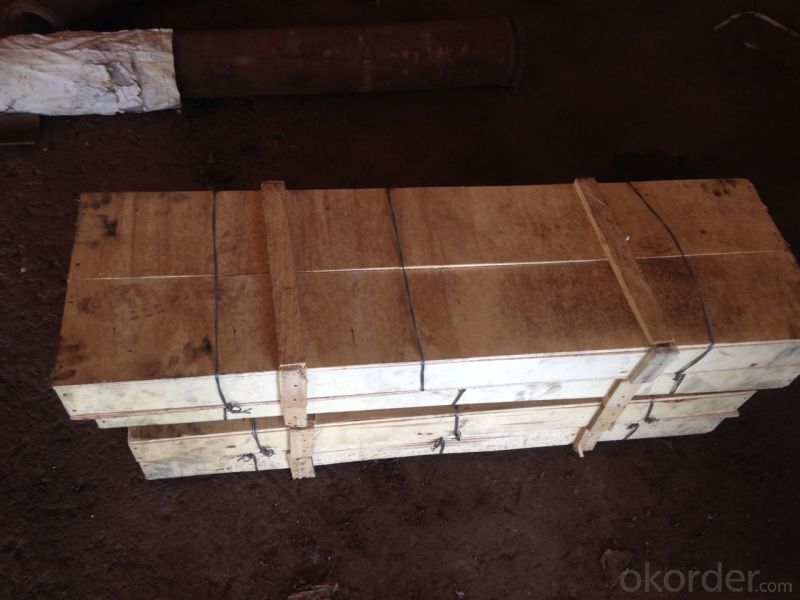
- Q: Are there any specific guidelines for the installation of hopper components or agitators in concrete pump spare parts?
- Yes, there are specific guidelines for the installation of hopper components or agitators in concrete pump spare parts. These guidelines are designed to ensure proper functioning and safety of the equipment. Here are some of the key guidelines to follow: 1. Read the manufacturer's instructions: It is important to carefully read and understand the manufacturer's instructions for installing hopper components or agitators. These instructions will provide specific details and steps for installation. 2. Use proper tools and equipment: Make sure to use the appropriate tools and equipment as recommended by the manufacturer. This includes using the right size wrenches, bolts, and other necessary tools for the installation process. 3. Ensure a clean and level surface: Before installing the hopper components or agitators, ensure that the surface is clean and level. This will help in proper alignment and functioning of the parts. 4. Check for any damages or defects: Before installation, thoroughly inspect the hopper components or agitators for any damages or defects. If any issues are found, it is important to address them before proceeding with the installation. 5. Follow proper alignment and positioning: Follow the manufacturer's recommendations for aligning and positioning the hopper components or agitators. Improper alignment can lead to malfunctioning or premature wear of the parts. 6. Securely fasten all connections: Ensure that all connections, such as bolts, nuts, and clamps, are securely fastened as per the manufacturer's instructions. Loose connections can cause accidents or damage to the equipment. 7. Test the equipment: After installation, it is important to test the equipment to ensure proper functioning. Follow the manufacturer's guidelines for testing and make any necessary adjustments if required. 8. Regular maintenance and inspection: Once the hopper components or agitators are installed, it is essential to regularly inspect and maintain them. This includes cleaning, lubricating, and replacing any worn-out parts as per the manufacturer's recommendations. By following these guidelines, you can ensure that the installation of hopper components or agitators in concrete pump spare parts is done correctly, promoting efficient operation and prolonging the lifespan of the equipment.
- Q: What are the types, classifications and specifications of concrete pump?
- According to the ability of mixing materials, select the range of output; according to the aggregate of pumping concrete, select the form of the distribution valve
- Q: How do I properly maintain and replace filters in concrete pump spare parts?
- To ensure optimal performance and longevity of your equipment, it is crucial to properly maintain and replace filters in concrete pump spare parts. Here are some guidelines to follow: 1. Get familiar with the different types of filters: Concrete pumps have various filters for hydraulic oil, fuel, air, and water. Take the time to understand which filters are used in your equipment. 2. Consult the manufacturer's instructions: Read the equipment manual and adhere to the guidelines provided by the manufacturer regarding filter maintenance and replacement intervals. This will ensure that you are following the recommended practices. 3. Conduct regular filter inspections: Periodically check the filters for signs of damage, clogging, or excessive debris accumulation. You can visually inspect them or measure the pressure differential across the filter. If the pressure differential exceeds the recommended limit, it may be necessary to replace the filter. 4. Clean or replace filters as required: If the filters are clogged or dirty, they should be cleaned or replaced. Some filters can be cleaned by blowing compressed air in the opposite direction of the airflow to remove debris. However, it is important to note that certain filters are disposable and cannot be cleaned. 5. Use authentic spare parts: When replacing filters, always opt for genuine spare parts recommended by the manufacturer. This ensures compatibility and performance. 6. Follow proper handling and installation procedures: When installing new filters, make sure to handle them with clean hands or wear gloves to prevent contamination. Follow the correct installation procedure, such as tightening the filter housing to the recommended torque value. 7. Maintain a regular maintenance schedule: Establish a consistent schedule for filter inspection, cleaning, and replacement. This will help you stay on top of filter maintenance and prevent potential issues caused by dirty or clogged filters. By adhering to these steps, you can effectively maintain and replace filters in concrete pump spare parts, ensuring efficient equipment operation and an extended lifespan.
- Q: How do I properly maintain and replace hydraulic filters in concrete pump spare parts?
- To properly maintain and replace hydraulic filters in concrete pump spare parts, follow these steps: 1. Regularly inspect the hydraulic filters for any signs of damage, clogs, or excessive dirt accumulation. 2. If the filter is damaged or excessively dirty, replace it immediately to ensure the proper functioning of the hydraulic system. 3. Before replacing the filter, ensure that the hydraulic system is depressurized to avoid any accidents. 4. Carefully remove the old filter and dispose of it properly. 5. Clean the filter housing thoroughly to remove any debris or contaminants. 6. Install the new hydraulic filter, ensuring that it is properly seated and secured in place. 7. Double-check that all connections and fittings are tight to prevent any leakage. 8. Once the new filter is in place, refill the hydraulic system with the recommended hydraulic fluid. 9. After replacing the filter, run the concrete pump and observe for any abnormal sounds, leaks, or pressure fluctuations. 10. Maintain a regular filter replacement schedule based on the manufacturer's recommendations to ensure optimal performance and prevent potential damage to the hydraulic system.
- Q: Are there any warranties or guarantees available for concrete pump spare parts?
- Concrete pump spare parts come with warranties and guarantees to ensure their quality and performance. Various manufacturers and suppliers provide these warranties, which typically cover defects in materials or workmanship. The coverage period usually ranges from a few months to a year or more. Furthermore, some suppliers offer guarantees on the performance or durability of their spare parts, providing customers with reassurance. To ensure your protection in case of any issues, it is advisable to inquire about the specific warranty or guarantee terms before purchasing concrete pump spare parts.
- Q: Do concrete pump spare parts come with a warranty?
- Yes, concrete pump spare parts do come with a warranty. The warranty period may vary depending on the manufacturer and the specific part being purchased. Generally, reputable manufacturers and suppliers offer warranties on their spare parts to provide assurance to customers about the quality and reliability of the product. It is important to carefully review the terms and conditions of the warranty to understand what is covered and for how long. If any defects or issues arise during the warranty period, customers can typically get a replacement or have the part repaired at no additional cost.
- Q: What is the importance of a concrete pump control valve?
- The operation of a concrete pump heavily relies on the presence of a control valve, which plays a vital role. This crucial component allows for the accurate and efficient management of concrete flow and pressure. To grasp the significance of a concrete pump control valve, one must consider its various functions. Firstly, it serves to regulate the movement of concrete from the hopper to the pumping cylinders. Through manipulation of this valve, operators can adjust the flow rate to meet the specific demands of the project. This ensures that the appropriate amount of concrete is pumped, preventing wastage and optimizing productivity. Secondly, the control valve facilitates precise control of pressure within the pumping cylinders. By making adjustments to the valve, operators can increase or decrease pressure levels, maintaining a consistent and steady concrete flow. This ability is crucial in preventing blockages or clogs within the concrete pump system, which can lead to costly downtime and repairs. Moreover, the control valve enables operators to switch between different pumping modes, such as high-pressure pumping or low-pressure spraying. This versatility allows for the efficient completion of a wide range of concrete pumping tasks, from pouring foundations to applying decorative concrete finishes. In addition to its functional significance, a concrete pump control valve also contributes to the safety of the pumping operation. It empowers operators to halt or reverse the flow of concrete swiftly in the event of emergencies or equipment malfunctions. This feature ensures that potential hazards are promptly addressed, minimizing the risk of accidents and injuries. Overall, the importance of a concrete pump control valve lies in its capacity to provide precise control over concrete flow and pressure during pumping operations. It guarantees efficiency, productivity, versatility, and safety, establishing it as an indispensable component of any concrete pumping system.
- Q: What are the signs of a faulty concrete pump control panel?
- A faulty concrete pump control panel can be identified through various indicators. To begin with, the control panel not powering on or experiencing intermittent power loss may suggest a faulty electrical connection or a malfunctioning power supply. This can hinder the proper functioning of the panel and its ability to control the concrete pump. Furthermore, error messages or error codes displayed on the control panel may indicate issues with the internal components or sensors. These errors can range from minor malfunctions to more serious problems that require immediate attention. Additionally, an erratic behavior or unresponsive controls of the control panel can be observed. If the buttons or switches do not respond when pressed or behave inconsistently, it could signal a problem with the panel's circuitry or wiring. Moreover, the occurrence of unusual noises or vibrations emanating from the control panel may be a sign of internal mechanical issues. These could include loose or damaged components, faulty relays, or malfunctioning motors. Lastly, if the concrete pump does not perform as expected, it may be attributed to a faulty control panel. Insufficient pressure, incorrect flow rates, or difficulties in starting or stopping the pump can all indicate a malfunctioning control panel. Regardless of the indicator, it is crucial to seek the assistance of a professional technician or the manufacturer for inspection, diagnosis, and repair if there is suspicion of a faulty control panel in a concrete pump.
- Q: What are the key considerations when purchasing spare parts for a concrete pump?
- When purchasing spare parts for a concrete pump, there are several key considerations that need to be taken into account. These considerations include the compatibility of the spare parts with the specific make and model of the concrete pump, the quality and reliability of the spare parts, the availability of the spare parts, and the cost-effectiveness of the purchase. First and foremost, it is crucial to ensure that the spare parts being purchased are compatible with the concrete pump in question. Concrete pumps come in various makes and models, and each may have specific requirements in terms of spare parts. Therefore, it is essential to carefully match the specifications and requirements of the concrete pump with the spare parts being purchased to ensure proper functionality and performance. The quality and reliability of the spare parts are also vital considerations. Investing in high-quality spare parts can significantly impact the efficiency and longevity of the concrete pump. It is advisable to choose spare parts from reputable manufacturers or suppliers who have a proven track record of producing reliable products. Conducting thorough research and reading customer reviews can help in assessing the quality and reliability of the spare parts. Availability is another important factor to consider when purchasing spare parts for a concrete pump. It is essential to ensure that the spare parts needed are readily available, either from local suppliers or through efficient delivery channels. A delay in obtaining the necessary spare parts can lead to extended downtime and increased costs. Therefore, it is recommended to choose suppliers who have a reliable and efficient distribution network. Cost-effectiveness is also a key consideration when purchasing spare parts. While it is important to prioritize quality and reliability, it is equally important to find spare parts that offer good value for money. Comparing prices from different suppliers and considering the lifespan and potential maintenance costs of the spare parts can help in making a cost-effective decision. It is crucial to strike a balance between cost and quality to ensure the best return on investment. In conclusion, when purchasing spare parts for a concrete pump, it is important to consider compatibility, quality, availability, and cost-effectiveness. By carefully evaluating these key considerations, one can ensure that the spare parts chosen will meet the specific needs of the concrete pump, maintain its performance and reliability, and provide value for money.
- Q: Can I get spare parts for concrete pump accessories like remote control systems?
- Yes, spare parts for concrete pump accessories like remote control systems are available. You can find them from various suppliers and manufacturers that specialize in concrete pump accessories.
Send your message to us
Concrete Pumps Spare Parts Complete Upper Housing Q90
- Loading Port:
- Tianjin
- Payment Terms:
- TT OR LC
- Min Order Qty:
- 1 pc
- Supply Capability:
- 1000 pc/month
OKorder Service Pledge
OKorder Financial Service
Similar products
Hot products
Hot Searches
Related keywords
